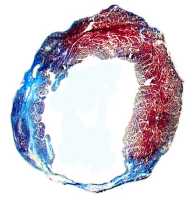Do you want to know more about how the human body works? Did you enjoy your HUBS courses?
A degree in physiology takes your knowledge of how our neural, cardiovascular, and epithelial systems work to a higher level.
Physiology is the study of how organisms function and survive in a changing environment. At the University of Otago, the BSc in Physiology focuses primarily on the functions of the human body.
Students study a wide range of interesting topics, including how single cells transport molecules across their cell membranes, how brain cells communicate with one another and how whole animals regulate cardiovascular / respiratory function in response to exercise and altitude.
Course material is taught through a mixture of lectures, practical laboratories, small group tutorials and computer-assisted and self-directed study.
Course of study
If you have passed HUBS 191, HUBS 192 and two of CELS 191(or 199), CHEM191, PHSI 191 or BCHM 192 then you are ready to enrol in our second year physiology papers: PHSL231, PHSL232 and PHSL233. These three papers are required for both the physiology and functional human biology majors.
In Semester One, the only physiology second-year paper you can enrol in is PHSL 231, therefore we recommend that you enrol in two or three other second-year papers that support the study of physiology, and to give you a plan B in case you decide not to major in physiology.
Papers from anatomy, pharmacology, biochemistry, genetics, microbiology work well with physiology, however you can take papers from any subject - not necessarily science papers. For a FUHB major there is a selection of papers from which you can choose.
To complete your degree you need to have passed papers with a total point value of 360 points (20 papers). Four of these papers must be your specialised 300-level papers in physiology. A further six papers must be 200- or 300-level papers, and the remaining ten papers can be 100-level or above. As a BSc or BBiomedSc student you can take 5 non-science papers and have these count towards your degree.
We suggest you plan out your proposed degree before you enrol through eVision. If you are a bit confused or have questions of any kind please contact your physiology course adviser: Fiona McDonald (fiona.mcdonald@otago.ac.nz) Finally, remember that you can change your course and major during your degree, however we recommend that you contact a course adviser to discuss options.
Summary of papers
| Level | Papers | Points |
|---|---|---|
| 100-level |
HUBS 191 Human Body Systems 1 HUBS 192 Human Body Systems 2 At least two of: |
18 18 36 |
| 200-level |
PHSL 231 Neurophysiology PHSL 232 Cardiovascular and Respiratory Physiology PHSL 233 Cellular, Gastrointestinal and Renal Physiology |
18 18 18 |
| 300-level | Four of: |
72 |
| Plus |
162 further points; must include 54 points at 200-level or above. Up to 90 points may be taken from outside Science |
162 |
| Total | 360 |

Related links
- Physiology infosheet (PDF, 380 KB)
- Physiology BSc Undergraduate Handbook (PDF, 870 KB)